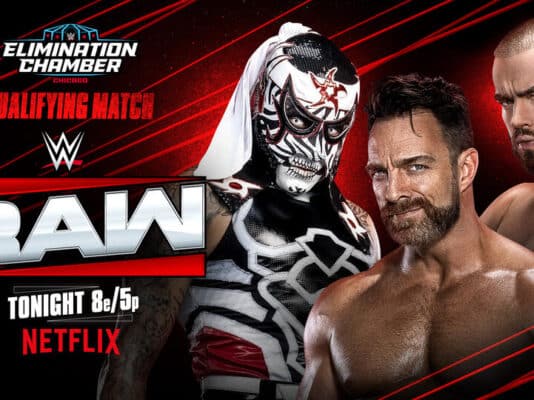
In a relatively small story compared to the WWE-related headlines that have shook the industry recently, TNA president, Scott D’Amore was fired by Anthem Entertainment, the parent company of the wrestling organization. PWInsider’s Mike Johnson, the most accurate journalist that covers the sport, reported that the decision was made by Anthem CEO, Len Asper, and that Anthony Cicione, who works within the sports division of the company, was named the new president of the wrestling project. The Wrestling Observer’s Dave Meltzer provided an update on the situation, reporting that the reason that D’Amore was given his pink slip was that the former on-screen coach of Team Canada wanted an increase in the budget to secure more talent, but Anthem brass denied the request. Cicione has worked for Anthem for several years, but has no prior wrestling experience.
In some ways, this decision is surprising, and in other ways it’s not surprising at all.
Clearly, D’Amore, who had various stints with the organization over the years after his initial start with the company in 2003, believes that the TNA brand can be more than just a Canadian product that is used primarily as the foundation of The Fight Network in the country, which is why Anthem purchased TNA to save it from the brink of collapse in 2016. It’s well-known that D’Amore’s family is very wealthy and while he wasn’t taking on the stressful task of a wrestling promoter for nothing, he doesn’t need the paycheck either. D’Amore was there because he had faith in the TNA project, and while that doesn’t automatically mean that he was right or that Anthem was wrong, the belief that he had was what allowed him to take a brand that was almost completely tarnished and elevate it to something that at least had fans taking, albeit on a smaller scale.
It’s a rather odd time for a switch to be made, particularly with the rebrand of Total Nonstop Action, and the fact that D’Amore was the creative force behind that decision, but the next chapter will be based on the guidance of someone without any sports entertainment knowledge. If nothing else, a change of the president of the wrestling group doesn’t allow a seamless transition to the overall direction since the path was originally chosen by D’Amore.
In some ways, this reminds me of the Ring Of Honor scenario under Sinclair Broadcasting ownership, but to a lesser degree in terms of the level of success that could’ve been realistically achieved if the organization was willing to invest into the wrestling venture. Keep in mind, there was a time prior to the formation of All Elite Wrestling that ROH was drawing solid crowds for live events and had a level of buzz because of the popularity of The Elite stable. If Sinclair would’ve offered The Young Bucks, Cody Rhodes, and Adam Page enough more to stay then we wouldn’t be discussing AEW today. The biggest difference was that Sinclair was in the television business, not the pro wrestling business. They wanted ROH for the relatively cheap original programming that it provided for their stations, not to attempt to compete within the dynamics of the sports entertainment industry. As we know, the domino effect of The Elite’s exit from ROH was that Tony Khan bought the brand from Sinclair a few years later.
It goes without say that if TNA wants to be a profitable portion of the Anthem corporation, they are going to at least need the resources to sign and retain stars that are going to generate some type of revenue. They are going to have to sign talent that can draw and then offer them enough money to want to re-sign so that the investment the organization made in them, both in terms of promotional dollars and TV time, wasn’t used simply to showcase them for the chance to sign somewhere else. Obviously, Anthem shouldn’t spend themselves into the red on the wrestling group, but if they are going to own a sports entertainment property, and it has the realistic potential to be profitable then they have to be willing to make some type of reasonable investment to continue the success.
If Anthem doesn’t think that reasonable investment would lead to some type of profit then it might be a better option for them to sell the video library to assure some level of profit than risk the expenses of running a scaled-down wrestling brand.
This is where Anthem must decide what the overall goal is for the TNA project? Do they just want a wrestling show on their channels? If wrestling properties and the talent themselves are considered interchangeable by corporate executives then the quality and the perception of the product will be minimal, the Jim Herd era of WCW in the early-90s proved that. Does TNA have enough value to be a profitable niche? Sure, but even a niche product requires the cash to secure talent that will be an effective draw for the niche audience. That’s the other side of the coin of the situation, not only does Anthem have to determine its overall goal with TNA, but also decide how much cash they want to invest to accomplish it. If they just want a TV show with a wrestling ring and some wrestlers then that will be a much cheaper budget, but at the same time, it will yield less of a return on the investment.
Listen, I’m not saying that TNA could’ve been a major player in the industry in 2024 (although, if they worked with WWE more extensively, it’s possible they could’ve made a dent in AEW’s market share), but as the story unfolded, especially with a new president with no wrestling experience, this seems like it was a case of a corporate executives cutting the budget because they don’t understand the dynamics of the wrestling business. Again, I’m not saying that Anthem should make a massive investment into TNA, but why exactly run on a shoestring budget? Wouldn’t it be easier to just sell the previously mentioned video library for some hefty cash?
The bottom line is, if TNA was paying comparative money, they would be a landing spot for more free agents, but that rarely happens. Trinity Fatu signed with Impact as a bridge between her WWE runs, but you don’t see the biggest free agents even consider TNA because there’s always better money to be made elsewhere. Perhaps, Anthem is content with TNA as a Canadian product with limited distribution, and if they can make a profit on those economics, good for them. As far as viewership in the United States, USA and TBS, the networks that broadcast Raw and Dynamite respectively, have roughly 50% more TV clearance than Axs, the channel that airs Impact. If they can make money with TNA then it’s a smart business move, but again, the ability to maintain that depends on the talent and direction of the company.
Scott D’Amore was the reason that the company had any type of buzz at the start of the year, and by all accounts, he was the force behind the rebuild of the product so if nothing else, the decision to fire him in favor of a new president with no experience, puts a ceiling on how much progress the brand can make as a force within the industry.
The optics of firing a president don’t make the company look good, especially after it had a level of hype around it that they haven’t had in years. However, and this is the biggest takeaway from this story, even the decision to fire D’Amore or not invest more cash into the company might be rather moot in the grand scheme of things. Unless there was going to be more involvement with WWE this year, TNA still doesn’t have the brand, the funding, the distribution, or the roster to be on a comparable level to AEW or WWE so even the best case scenario would generate limited success for the company.
What do you think? Share your thoughts, opinions, feedback, and anything else that was raised on Twitter @PWMania and Facebook.com/PWMania.
Until next week
-Jim LaMotta
E mail [email protected] | You can follow me on Instagram, Facebook, & Threads @jimlamotta89












